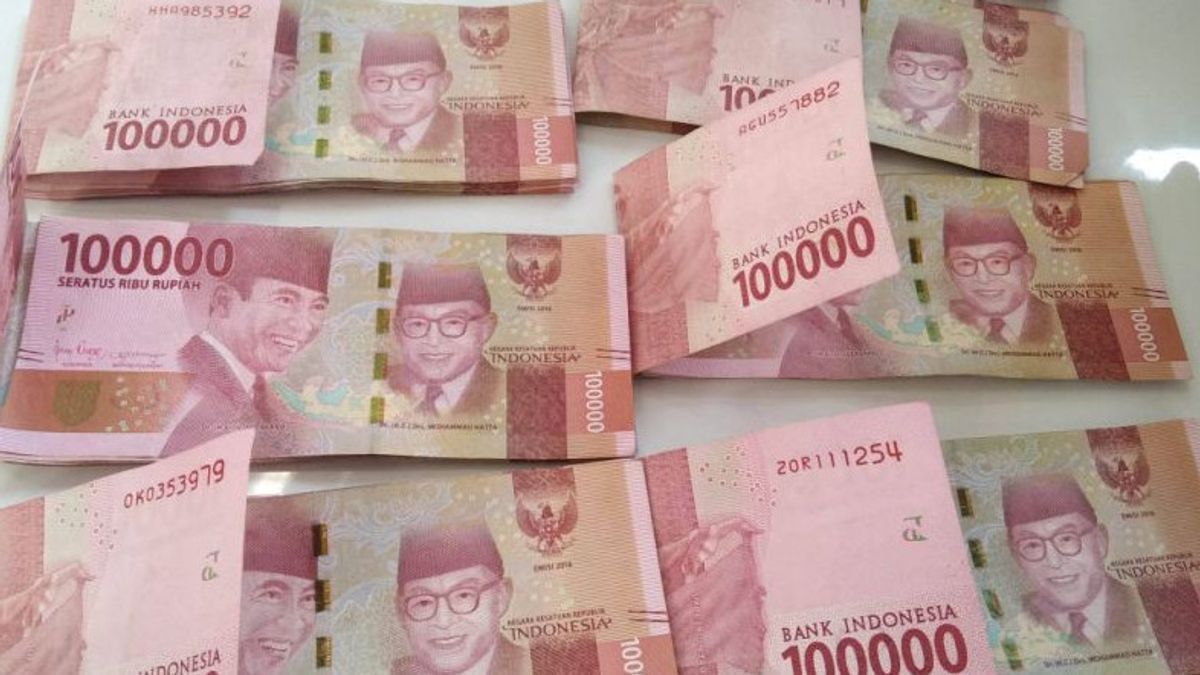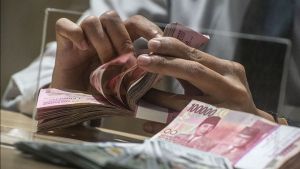YOGYAKARTA Not long ago, a man in Surabaya, East Java named Rochmad Hidayat was sentenced to one year and two months in prison for intentionally damaging Rp32 million in rupiah and putting it in an Independent Cash Machine (ATM).
"The trial, stated that the defendant Rochmad Hidayat was sentenced to 1 year and 2 months in prison and a fine of Rp. 50 million, subsidiary to 3 months in prison," said Chief Justice Darwanto, through his decision which was accessed at the Surabaya District Court SIPP Laman, Thursday, January 12, 2023.
The act of destroying the money began when Rochmad was annoyed that he got the cash tore when he made a cash withdrawal at an ATM machine. At that time, he re-entered the damaged money into the ATM machine and managed to get in.
From here, there is an intention to do the same thing. Rochmad then cut the banknote and then deposited it through the CRM (Cash Recycling Machine) in several places. The action was carried out 6 times in several different CRM machines in the Surabaya region from August to September 2022.
The total amount of damaged money that Rochmad has deposited reached Rp. 32 million. Rochmad's action was revealed after a customer reported it to a bank that operates an ATM. The banking policy conducted an investigation and reported Rochmad to the Surabaya Police.
Regarding the case of money vandalism carried out by Rochmad, Head of the Bank Indonesia (BI) Money Management Department Suhaedi stated that people who deliberately damage rupiah currency, such as cutting money sheets, will be sentenced to a maximum of five years in prison and a maximum fine of IDR 1 billion.
"Of course, when referring to the law because there is a potential bad intention," said Suhaedi, quoted from Tempo.
Prison sentences and fines for people who damage money are deliberately based on Article 35 of Law Number 7 of 2011 concerning Currency.
In the first paragraph of the article, it is said that every person who intentionally destroys, cuts, destroys, and changes the value of the rupiah with the intention of degrading the honor of the rupiah, including criminal acts.
Meanwhile, in the third paragraph, it is stated that every person who imports or exports damaged rupiah will be imprisoned for a maximum of 10 years with a maximum fine of IDR 10 billion.
According to Suhaedi, rupiah currency that is exfoliated with stampers is not included in the category of money destruction because it is considered a form of misunderstanding of banknote users.
Nevertheless, Suhaedi still asked the public to treat the money well. He said, if the money was proven to be intentionally damaged, Bank Indonesia would not replace it.
Suhaedi said that his party has a commitment to educate the public so that they can treat money well.
He added that Bank Indonesia has collaborated with the Ministry of Education and Culture to educate students from elementary school (SD) to High School (SMA) to behave well with money, such as not tearing, crossed out, cutting, or leaving behind. "Money is not just a means of payment, but a symbol of national sovereignty." Suhaedi firmly.
Not only that, Suhaedi also invited the public to exchange money that was no longer feasible to Bank Indonesia. Money that can be exchanged at least in serial numbers that are still read is not damaged because it is intentional. BI cooperates with law enforcers to prevent the circulation of counterfeit money.
That's information regarding the regulation on the prohibition of destroying rupiah currency according to BI. Updates on the latest developments are only on VOI.id.
The English, Chinese, Japanese, Arabic, and French versions are automatically generated by the AI. So there may still be inaccuracies in translating, please always see Indonesian as our main language. (system supported by DigitalSiber.id)













